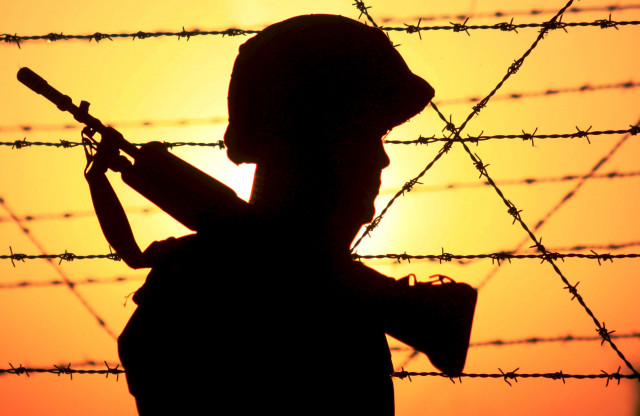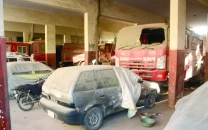Tales from the LoC: Divided at home
Villagers separated by de facto border throw gifts for their relatives across the river.

There are some people in Karen village who can talk to their relatives only when the winter is at its harshest and the sound of the river is low. They shout messages across to their family members for this is the closest they can get to them.
Divided by the Line of Control (LoC) that separates the two parts of Kashmir, people from this small village can never meet each other.
Karen is about 80 kilometres north of Muzaffarabad, in the centre of the spectacular Neelum Valley. On the other side, Karen is linked with Kupwara town of Indian Kashmir.
This picturesque village spread on both sides of the LoC - the border created “temporarily” more than 60 years ago, divides the state of Jammu and Kashmir into its Pakistan and Indian controlled parts.
The status of Jammu and Kashmir is still disputed, and the LoC that was called the ceasefire line before the Simla agreement between Pakistan and India under the United Nations resolution, is still a temporary border as per international law.
Ravis Khan, now around 75, recalls the village’s hanging bridge that he used to cross almost daily to visit his family living across the Neelum River before 1947. The bridge ceases to exist and there are no remnants left.
Sitting at his small tuck- shop that he runs with his friend Muhammad Yousaf, also in his mid-70s, the two men pointed towards the area where villagers having relatives on the other side sometimes stand, wave and scream across to each other to beat the noise of the river on some special occasions.
This “festivity” for them has been made possible after 2003-04 when the armed forces on both sides agreed to stop crossfire and some peace was restored. During the ‘90s, the firing between both forces was a daily routine.
The exchange of greeting between locals on both sides mostly occurs in the harsh winters when temperatures drop below freezing point and the whole area is covered in heavy snow. During the summer, high water pressure and noise of the river prevents people’s voices from crossing over.
When there is a call for prayer (Azan) on one side of the border, people from the other side also go to offer their prayers, villagers said.
Sometimes people also exchange small gifts on special occasions like marriage or Eid, but they have to throw them across with a small rock tied to the present to save their gift from falling into the water.
Yousaf recalls a moment when a man in his twenties, unable to control his emotions after seeing his father who had come from a village in Indian Kashmir, jumped into the river, crossed the icy waters and disappeared in the jungle with his father to avoid being caught by Indian forces. “I don’t know what happened to them after that,” Yousaf said.
He said the boy was from a village in Indian Kashmir and had crossed the LoC with a group of militants. He lived in a refugee camp in Muzaffarabad for a few years, while the rest of his family was on the other side of the border.
Locals claim that many civilians have been killed by soldiers assuming them to be militants trying to cross over the border. Although some of them were militants, others just wanted to see their loved ones.
Published in The Express Tribune, June 29th, 2011.



















COMMENTS
Comments are moderated and generally will be posted if they are on-topic and not abusive.
For more information, please see our Comments FAQ